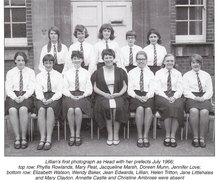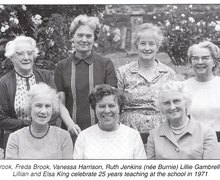History Of The School
- Home
- About Us
- History Of The School
- facebookShare this page on Facebook
- twitterTweet this page
- pinterestPin this page
As part of DGGS's special Centenary celebrations the DGGS FM DJs interviewed three people in the community, all of whom have different links with the school.
This was a very interesting and exciting opportunity, and the girls learned a lot about the history of the school, the community, and the lives of the people interviewed. To listen to these interviews just simply click on the person's name below.
Mr Derek Leach
Derek Leach is a local historian with a passion for Dover. His first published work was ‘The Life and Times of a Dovorian – Lillian Kay’, which chronicles the life and memories of Lillian who was a former pupil, teacher and Headmistress at Dover Grammar School for Girls. Derek has subsequently gone on to publish four other titles, all expertly looking into the history of Dover and it’s inhabitants. Our interview with Derek was really interesting, and he answered many of the questions we had about the history of Dover Grammar school for Girls.
Miss Lillian Kay
Lillian Kay has had a long standing relationship with Dover Grammar School for Girls which spans from the 1920s. Lillian first started attending DGGS, or Dover County School for Girls as it was known then, as a scholarship pupil in 1925. She later returned to DGGS to teach Mathematics in the 1940s and remained at the school, rising to become Headmistress until she retired in 1977. Lillian's knowledge of the school and the changes it has undergone were therefore invaluable for our Centenary celebrations - from both a pupil's and teacher's perspective. The interview we conducted with her was fascinating, and we learned a great deal.
Mrs Enid Flood
Mrs Enid Flood (or Enid Bond as she was known then) attended Dover Grammar School for Girls during the 1940s and early 1950s. During this time the school was evacuated to Caerleon in Wales because of the outbreak of World War II. Enid's account of her time at the school therefore proved invaluable as not many records are held in our archive of this time because of the restriction and access to materials and printing. Enid's account was both amusing and humbling in her descriptions of the horrors faced by the people living in Dover, or 'Hell's Fire Corner', as it was christened during the war.
Documents
| Centenery | Date | |
|---|---|---|
| Centenery School History.pdf | 27th Jul 2018 | Download |


